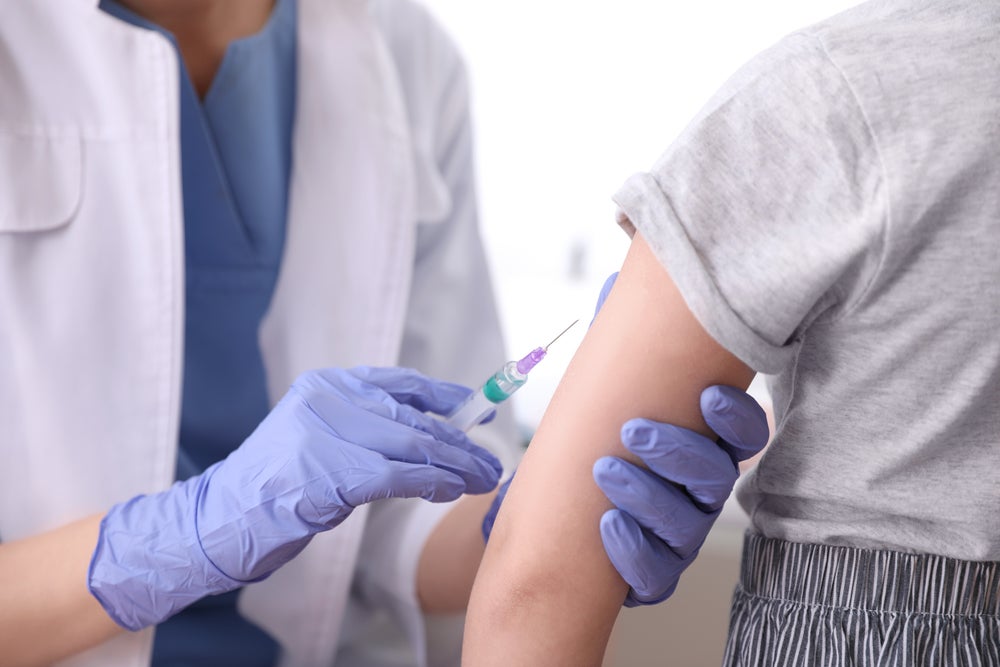Measles is a highly contagious airborne disease caused by an RNA [ribonucleic acid] virus that can lead to severe complications and death. Before the introduction of the measles vaccine in 1968, there were 160,000 to 800,000 cases of measles annually in the UK. Since this time, the UK Health Security Agency (UKHSA) estimates that 20 million cases and 4,500 deaths have been prevented.
The UK achieved measles elimination in 2017 but quickly lost this status when endemic transmission of measles occurred throughout the country after a resurgence of the virus across Europe. Since then, the annual number of measles cases has been increasing. Research suggests that the surge in measles cases is attributed to vaccine hesitancy surrounding the measles, mumps and rubella (MMR) vaccine, as uptake is declining.
Measles can cause pneumonia, meningitis, blindness and seizures
Individuals infected with measles will initially present with cold-like symptoms with small white spots on the inside of the cheeks and back of the lips. After a few days, a rash will appear on the face and ears, and later spread to the rest of the body. If left untreated in vulnerable individuals such as babies and immunosuppressed people, measles can cause pneumonia, meningitis, blindness and seizures. The virus spreads very easily when an infected person coughs or sneezes. Basic infection control such as washing hands and using a tissue when coughing and sneezing can reduce transmission, but for the most part, viral protection from measles comes from the MMR vaccine.
The measles vaccine was added to the MMR combination vaccine in 1988. Since 1988, children have been offered two doses of the MMR vaccine, once at one year of age and then the second within three or four months of the initial vaccination. All member states of the World Health Organization (WHO) European Region have a longstanding commitment to eliminating measles and rubella, and this was a core goal of the European Vaccine Action Plan 2015 to 2020. The WHO would determine measles as being eliminated when there is an absence of endemic measles and rubella for at least 12 months from the last known case, due to complete interruption of endemic virus transmission. MMR uptake needs to be 95% to stop the virus spreading in the community.
New statistics from the UKHSA show that there were 1,603 suspected cases of measles in England and Wales in 2023 – an increase from 735 cases in 2022 and just 360 the year before.
MMR controversy has lasting legacy
Evidence from the UKHSA suggests that the number of children receiving their first dose of the MMR vaccine measles fell from 95.2% in 2017 to 92.9% in 2022; of these children, 87.8% and 85.2% received their second doses in 2017 and 2022 respectively. This decline in vaccination coverage is massively contributing to the increased transmission of measles, as the UK National Health Service estimates that nine out of 10 unvaccinated children will catch measles if another child in their school class has it.
Controversy has surrounded the MMR vaccine since 1998 when Andrew Wakefield, a former physician and discredited academic, falsely claimed that the vaccine would cause autism in vaccinated children in a paper he published in the Lancet. Wakefield’s findings were not reproducible, and in 2010 he was found to have been dishonest in his findings of a link between the MMR vaccine and autism. However, since that time, vaccine skepticism has increased among the population, and this could be contributing to the reduced take-up of the MMR vaccine across the UK.
Public health officers and practitioners must work to eliminate inaccuracy and stigma around the MMR vaccine, especially among future parents, to reduce the transmission of measles within vulnerable populations. It is also important to maintain good infection control practices in schools and healthcare settings to protect those who have not been vaccinated.







